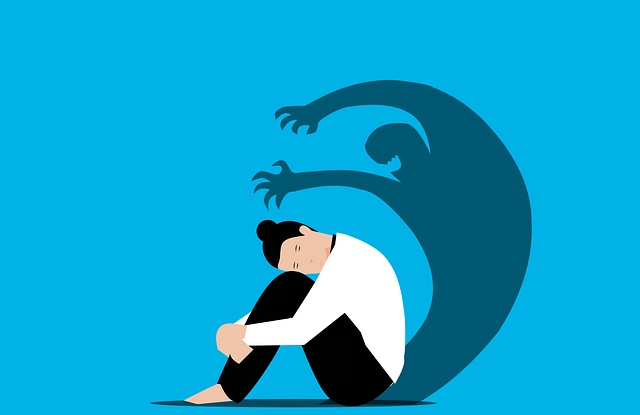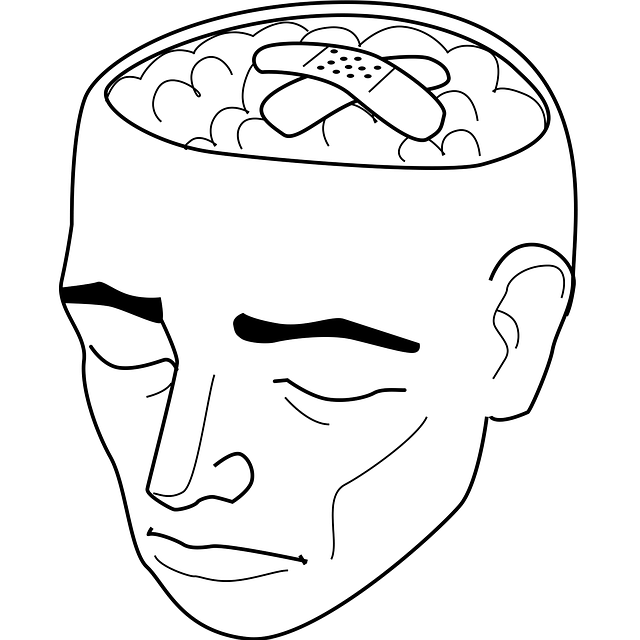Depression, a significant mental health challenge, requires early identification and prevention. Broomfield Psychosis Therapy offers a comprehensive approach, combining psychological counseling, lifestyle modifications, and culturally sensitive care. This therapy focuses on personalized risk assessment, integrating therapeutic techniques to manage depression triggers. Key strategies include regular exercise, balanced diets, mindfulness practices, social skills training, and building support networks. By empowering individuals with effective coping mechanisms and stress management tools, Broomfield Psychosis Therapy aims to reduce depression rates, promote mental well-being, and foster resilience in diverse communities.
Depression is a prevalent and serious mental health condition, yet it’s preventable. This comprehensive guide explores various strategies to safeguard your mental well-being. From understanding depression’s subtle signs to innovative treatments like Broomfield Psychosis Therapy, we equip you with tools for resilience. Learn how lifestyle adjustments, fostering connections, and mastering stress management can proactively prevent depressive episodes. Embrace these strategies to enhance your overall mental health and embrace life with renewed vitality.
- Understanding Depression: Recognizing the Signs and Symptoms
- Broomfield Psychosis Therapy: An Innovative Approach to Prevention
- Lifestyle Modifications for Enhanced Mental Well-being
- Building a Supportive Network: The Power of Connection
- Effective Coping Mechanisms and Stress Management Techniques
Understanding Depression: Recognizing the Signs and Symptoms

Depression is a common yet serious mental health condition that significantly impacts an individual’s daily life and well-being. Recognizing the signs and symptoms early on is crucial in preventing and managing this illness. Broomfield psychosis therapy, also known as psychological counseling or psychotherapy, plays a vital role in identifying and addressing these symptoms.
The first step in prevention involves understanding that depression manifests differently in everyone. It can range from persistent feelings of sadness to extreme fatigue and changes in appetite. Some individuals may experience difficulty concentrating or make decisions, while others might withdraw socially. Building resilience through various techniques, such as enhancing emotional intelligence, can be an effective way to strengthen one’s ability to cope with challenging situations. Additionally, cultural competency training for healthcare providers ensures that individuals from diverse backgrounds receive culturally sensitive care tailored to their unique needs when seeking help for depression.
Broomfield Psychosis Therapy: An Innovative Approach to Prevention

Broomfield Psychosis Therapy represents a groundbreaking approach to depression prevention, focusing on early intervention and tailored support. This innovative method goes beyond traditional treatments by addressing underlying psychological factors and fostering resilience in individuals at high risk. Through a comprehensive Risk Assessment for Mental Health Professionals, this therapy identifies unique triggers and personal challenges, enabling the development of customized strategies.
By integrating elements from various therapeutic modalities, Broomfield Psychosis Therapy creates a robust framework for risk management planning. It equips mental health professionals with the tools to conduct thorough mental health policy analysis and advocacy, ensuring personalized care that addresses not just symptoms but also the complex web of influences contributing to depression. This proactive approach holds promise in reducing the burden of depression, especially among vulnerable populations.
Lifestyle Modifications for Enhanced Mental Well-being

In the pursuit of Depression Prevention, Lifestyle Modifications play a pivotal role in enhancing mental well-being. This involves adopting healthy habits such as regular physical exercise, which has been clinically proven to boost mood and reduce symptoms of depression. A balanced diet, rich in nutrients essential for brain health, is another cornerstone. Additionally, prioritizing quality sleep schedules can significantly impact emotional regulation. Techniques like mindfulness meditation and yoga further contribute to stress reduction and overall mental resilience. Broomfield Psychosis Therapy emphasizes these lifestyle adjustments as foundational elements in combatting depressive disorders.
Integrating Social Skills Training within Depression Prevention strategies is equally significant. Building and maintaining healthy relationships foster a sense of belonging and support, which are crucial for mitigating risk factors associated with depression. Cultural Sensitivity in Mental Healthcare Practice underscores the importance of tailoring these interventions to address diverse individual needs, ensuring effectiveness across various cultural backgrounds. By combining lifestyle modifications and social skills development, individuals can proactively strengthen their mental resilience against depressive episodes.
Building a Supportive Network: The Power of Connection

Building a strong support network is an essential aspect of depression prevention and recovery, as human connection has proven to be a powerful healing tool. At Broomfield Psychosis Therapy, we emphasize the significance of fostering meaningful relationships that can provide emotional support and reduce feelings of isolation. Surrounding yourself with understanding and compassionate individuals allows for a safe space to share experiences, express emotions, and gain different perspectives. This sense of belonging can significantly impact one’s mental well-being, serving as a buffer against depression.
Encouraging open communication and fostering an environment where individuals feel comfortable discussing their struggles is key. By implementing effective stress management techniques, such as mindfulness practices and self-care rituals, supported by the principles of mind over matter, people can enhance their resilience. Additionally, working on self-esteem improvement through therapy or personal growth activities enables individuals to develop a healthier sense of self, which contributes to overall mental fortitude and a more optimistic outlook on life.
Effective Coping Mechanisms and Stress Management Techniques

Depression prevention strategies involve cultivating effective coping mechanisms and mastering stress management techniques. Engaging in regular physical activity, maintaining a balanced diet, and prioritizing adequate sleep can significantly enhance mood management. These lifestyle changes, often facilitated by Broomfield psychosis therapy, create a solid foundation for mental well-being.
Additionally, mindfulness practices, deep breathing exercises, and progressive muscle relaxation help individuals navigate stress and prevent burnout. Mental health professionals should incorporate these strategies into their risk management planning to support clients in overcoming depression and promoting resilience. Effective coping mechanisms not only mitigate symptoms but also empower individuals to better manage challenging situations, fostering a more balanced and fulfilling life.
In conclusion, depression prevention involves a multifaceted approach. From understanding the signs and symptoms to adopting lifestyle modifications, building supportive networks, and employing effective coping mechanisms, each strategy plays a crucial role in maintaining mental well-being. Among these, Broomfield Psychosis Therapy offers an innovative, evidence-based method for prevention, emphasizing the mind-body connection and holistic healing. By integrating these strategies into daily life, individuals can foster resilience against depression and enhance their overall quality of life.














